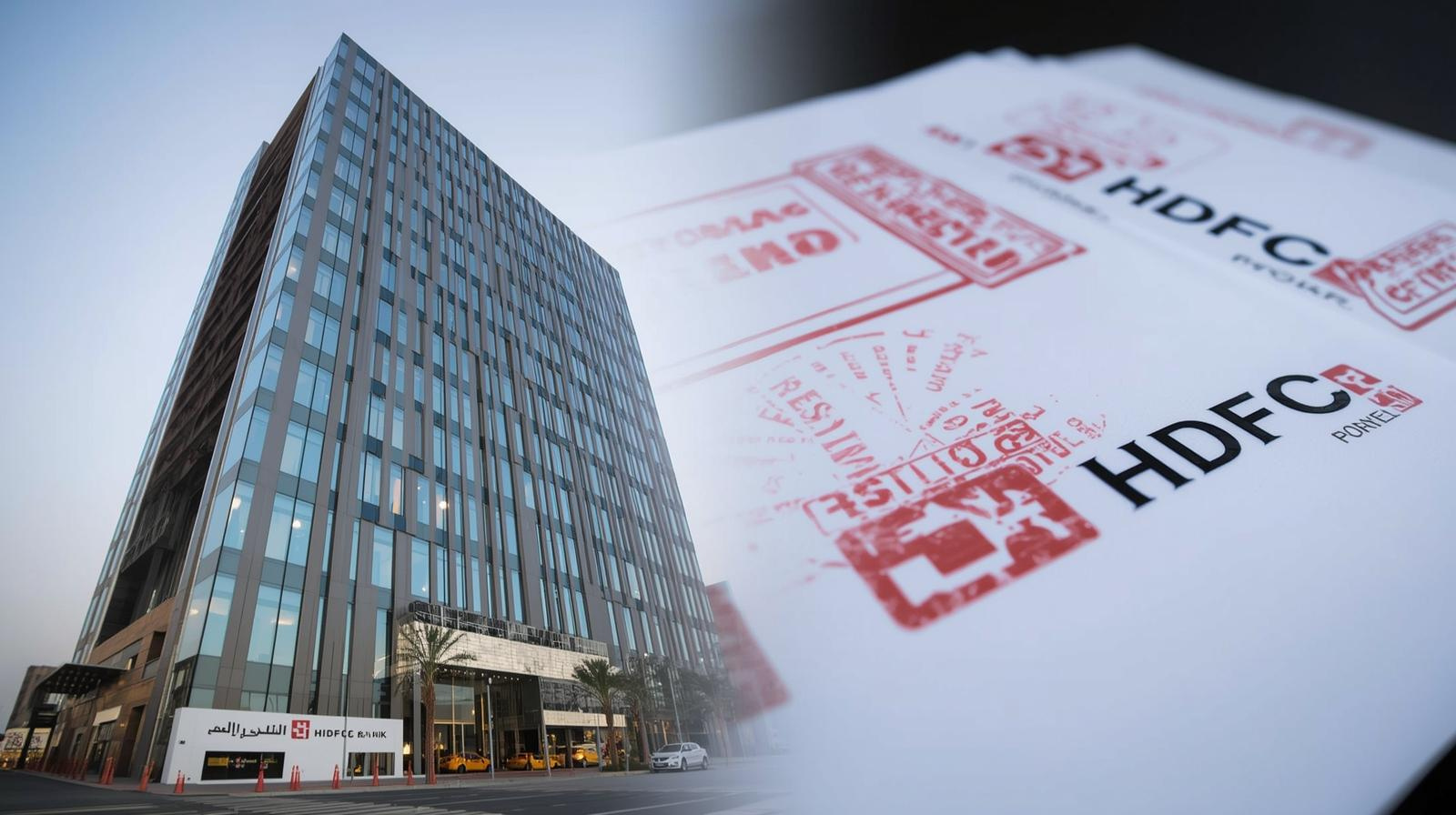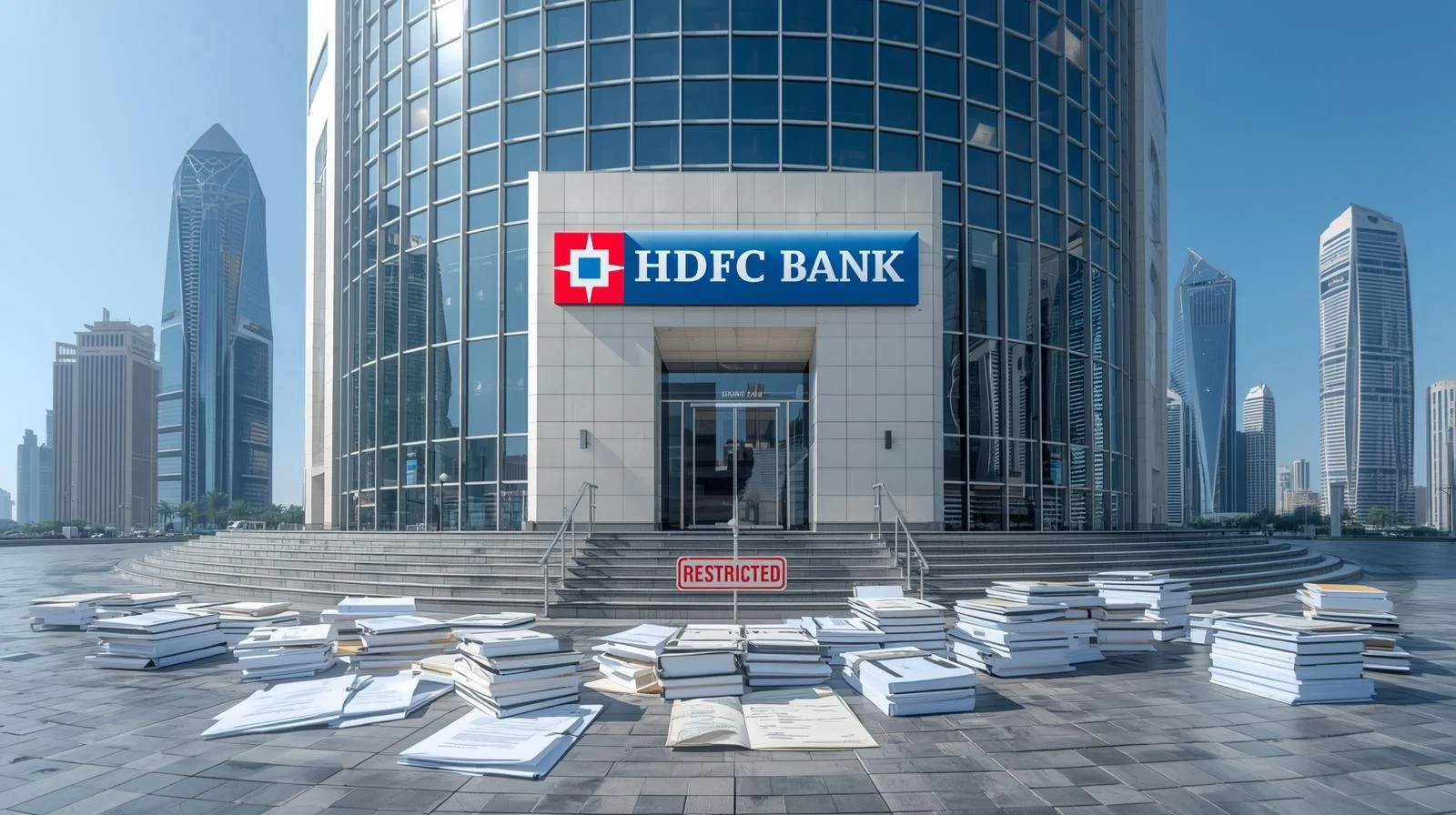
Instagram and YouTube Built “Addiction Machines,”
A California trial alleges Instagram and YouTube engineered addictive features harming a child’s men

The Dubai Financial Services Authority (DFSA) has imposed restrictions on the Dubai International Financial Centre (DIFC) branch of HDFC Bank, one of India’s largest private sector banks. The regulator has barred the branch from onboarding new clients, citing compliance and governance concerns. This move has drawn significant attention across the financial sector, as it highlights the increasing scrutiny regulators are placing on international banks operating in the region.
HDFC Bank, headquartered in Mumbai, India, has been expanding its global footprint to cater to non-resident Indians (NRIs) and international clients. Its DIFC branch in Dubai has been a key hub for serving high-net-worth individuals and corporate clients in the Middle East. However, the DFSA, which oversees financial institutions operating within the DIFC, has raised concerns about the bank’s compliance framework and internal controls.
According to the DFSA, the restriction is a supervisory measure aimed at ensuring that HDFC Bank’s DIFC branch strengthens its risk management systems before it can expand its client base further. While the regulator has not disclosed the exact nature of the compliance lapses, industry experts suggest that the issues may relate to anti-money laundering (AML) protocols, client due diligence, and reporting standards.

The restriction means that HDFC Bank’s DIFC branch cannot accept new clients until it satisfies the DFSA that its compliance framework meets the required standards. However, the branch can continue to serve its existing clients without interruption.
This is not a complete suspension of operations but rather a targeted measure to ensure that the bank addresses regulatory concerns. For existing clients, services such as account management, remittances, and advisory functions will continue as usual.
For HDFC Bank, this development is a setback in its international expansion strategy. The DIFC branch has been a crucial part of its overseas operations, particularly in serving the large Indian diaspora in the UAE. The restriction could temporarily slow down the bank’s growth in the region and may also affect its reputation among global investors.
However, financial analysts believe that HDFC Bank has the resources and expertise to address the DFSA’s concerns. The bank has a strong track record of compliance in India and other jurisdictions, and it is expected to work closely with the DFSA to resolve the issues.
The DIFC is one of the most prominent financial hubs in the Middle East, hosting hundreds of international banks, investment firms, and insurance companies. The DFSA, as the independent regulator, has a mandate to ensure that all institutions operating within the DIFC adhere to global best practices in compliance, governance, and risk management.
In recent years, the DFSA has tightened its oversight of financial institutions, particularly in areas such as anti-money laundering, counter-terrorism financing, and client protection. The restriction on HDFC Bank’s DIFC branch is consistent with this broader regulatory trend.
The financial industry has reacted with a mix of caution and optimism. While some experts view the restriction as a warning sign for international banks operating in the DIFC, others see it as a routine regulatory measure that will ultimately strengthen the financial system.
Market analysts note that such restrictions are not uncommon and often serve as a wake-up call for institutions to enhance their compliance frameworks. In the long run, addressing these issues can improve investor confidence and ensure sustainable growth.
HDFC Bank has not issued a detailed public statement on the matter but is reportedly engaging with the DFSA to resolve the concerns. Sources close to the bank suggest that it is already working on strengthening its compliance systems and may bring in additional resources to meet the regulator’s requirements.
The bank’s management is expected to prioritize this issue, given the importance of the DIFC branch in its international strategy. Analysts believe that once the compliance gaps are addressed, the DFSA may lift the restriction, allowing the bank to resume onboarding new clients.
The restriction on HDFC Bank’s DIFC branch underscores the importance of robust compliance frameworks for international banks operating in global financial hubs. Regulators worldwide are increasingly vigilant about issues such as money laundering, financial crime, and client protection.
For banks, this means that compliance is no longer just a regulatory requirement but a critical component of business strategy. Institutions that fail to meet these standards risk not only regulatory action but also reputational damage and loss of client trust.
This development also reflects a broader trend in global financial oversight. Regulators in major financial centers such as London, New York, and Singapore have been tightening their scrutiny of banks, particularly in areas related to cross-border transactions and AML compliance.
The DFSA’s action against HDFC Bank’s DIFC branch aligns with this global trend, signaling that Dubai is committed to maintaining its reputation as a transparent and well-regulated financial hub.
The coming months will be crucial for HDFC Bank as it works to address the DFSA’s concerns. If the bank successfully strengthens its compliance framework, it could regain the regulator’s confidence and resume onboarding new clients.
For the broader financial industry, this case serves as a reminder of the importance of proactive compliance and governance. Banks operating in international markets must continuously invest in risk management systems to meet evolving regulatory expectations.
For more updates on global financial news and regulatory developments, visit www.cninews.ca.